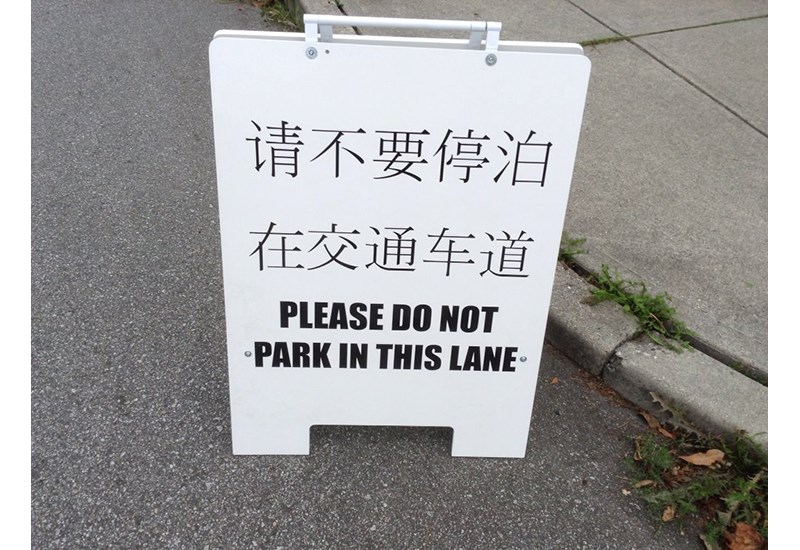The Editor,
Re: “English-inclusive signs a charter challenge?” News, Oct. 22.
Here we go again. The never-ending saga of cultural irritants. There was the shark fin soup debate, in blatant disregard for the ominous extinction of a species from planet Earth. Then, those pesky rich youth zooming around dangerously on public roads, ignoring people’s safety. Today, it is the contentious signs issue.
Do Chinese signs over bank facades mean that only Chinese are welcome here? Do Chinese-only menus mean that you can only eat here if you can read the menu? Do Chinese billboards on commercial/residential sites indicate — buy here only if you can read our signs?
I am part Chinese and very proud of my Oriental heritage. That is why these contentious and recurring issues upset and embarrass me. I am also a naturalized Canadian — appreciative of Canada’s generous and liberal immigration policy. I reciprocate that largess by respecting Canada’s laws, traditions, modes and mores, and her language. Do we hear other immigrant groups rattle the cage? Do we see posters in German, Portuguese, Spanish, Russian, obliterating English signage? No.
I cannot understand the leaders of the Chinese community who seem to encourage these divisive and alienating acts.
Or, if they do not encourage, per se, they do not discourage.
Today, newspapers write about bringing the Charter of Rights into the arguments.
You do not need the Charter. You need common sense. The operative word is adapt. More importantly, respect and appreciate your new homeland.
Maria Luz
Richmond



